Past Events

- Carmelo Mesa-Lago and Francisco Rodriguez-Jimenez
- Posvar 4130
What is Donald Trump's personality like? What was his family like? What is his ideology? What have been the highlights of his performance as a businessman, candidate, and head of the government of the most powerful country in the world? These questions require multi-causal answers that go beyond the clichés that have been spread by his defenders, his detractors, and Trump himself. The 45th president of the United States has been both praised and reviled. His personality, his professional career, and his emergence in American and world politics have been the subject of biased and didactic analyses. This book attempts to offer a more nuanced explanation, underpinned by hundreds of articles, books, and interviews on the character and his historical context. To understand the “Trump phenomenon” it is necessary to analyze its origins, as well as the political, social and economic dynamics of the United States. For better or worse, Trump is not a historical anomaly, but rather a product of his time. However, some of the most controversial actions of his mandate, which put democratic coexistence on the ropes, were largely his responsibility. His style of doing politics is still alive, as are the circumstances that made for his rise to power in 2016. Will he return to the White House in 2024?

- Nara Pavão, Universidade Federal de Pernambuco & Robert Kaufman, Rutgers University

- various
- Pitt Global Hub and Posvar Galleria (1st Floor, Posvar Hall)
Learn more about all that is planned for the 2022-23 academic year by the Asian Studies Center, the Center for African Studies, the Center for Ethnic Studies Research, the Center for Latin American Studies, the Center for Russian, East European, and Eurasian Studies, the European Studies Center, and the Global Studies Center. Celebrate with us the recent award of 12 new federal grants and learn how that money will support faculty and students interested in the world. Find new opportunities to study, research, or teach about the world. This event is open to all faculty and students and is an opportunity to meet others who share similar interests. Representatives from Pitt's Global Experiences Office and Office of International Studies, as well as the Nationality Rooms, will also be on hand.

- David Blackmore & Watufani Poe
- 4217 Posvar/Zoom

- Posvar 4130
This intensive, two-part program incorporates a cross-cultural homestay with individualized field study. The program is open to undergraduates of any major at the University of Pittsburgh with sufficient Spanish language proficiency and an interest in Latin American culture. The 15-20 students selected for the program will enroll in a preparatory seminar on campus during the spring of 2023, and then travel to the host country where they will study, live with a host family, and carry out an independent field project during the summer.

- Center for Creativity
Join PanteraCartonera@Pitt and create your own cartonera! The Cartonera Publishing trend began in Buenos Aires in 2003 and was organized by writers and artists producing hand-made books at low-cost using recycled cardboard, (thus the name "cartonera"). The books are produced in a collective-circular way, in which authors become – designers become – publishers become – authors. The Cartonera phenomenon has expanded across the Americas, Europe, and Africa. Many have “recycled” the model, adapting it to their local contexts, communities, and social needs. Pantera Cartonera is a joint initiative between the Center for Latin American Studies and the University Library System

- Sharon Ross, School of Education
- Room 1154, Public Health & Zoom
Dr. Sharon Ross, PhD, from the School of Education, will tell us about her study to support health lifestyles among with families and children in the Pittsburgh area:https://pitt.sharepoint.com/:b:/s/UCIS-CLAS/EX2ahPnevklLtCVBkps3yo8BDrF6... Taverno Ross, S.E., Barone Gibbs, B., Documet, P.I. et al. ANDALE Pittsburgh: results of a promotora-led, home-based intervention to promote a healthy weight in Latino preschool children. BMC Public Health 18, 360 (2018). [Zoom passcode: hola]

- Posvar 4130

- Posvar 4130

- Lucio Renno
- 4200 Posvar Hall (Center for Latin American Studies)

- 4217 Posvar
The purpose of the Student Club Coalition is to give clubs related to Latin America, the Caribbean, and the diasporas, an opportunity to be officially related to and involved with CLAS, providing mutual support for student engagement. The Student Club Coalition is designed to help students develop a voice for what's important to them, to assist them in that endeavor, and to help them acquire funding for those projects and goals. The member clubs work together to support each other and their goals, and to build friendships and community along the way. Lunch provided!

- Dr. Claudio Fabian Szlafsztein
- 4130 Posvar/Zoom
For this workshop CLAS has partnered with the Global Studies Center to introduce topics associated with the sustainability, development and conservation of the Amazon region. This course introduces significant topics associated with the sustainability of the Amazon region, where more than 30 million people live, inside an area comprising part of nine countries in South America. Almost 80% of the Amazon’s population is settled in urban areas.

- Larry Glasco (Pitt), Jackie Smith (Pitt), Hebe Mattos (UFJF), Martha Abreu (UFF), Randall Taylor
- 4130 Posvar/Zoom
Pittsburgh and Rio de Janeiro share similar histories of Black communities’ cultural resistances and struggles for rights. Hosted by the Center for Latin American Studies and the World History Center, the goal of this event is to discuss the ways in which the urban landscapes of both cities are shaped by difficult cartographies, especially when related to racism and slavery. We also aim to discuss how scholars and community activists can collaborate in building strategies to make the topic accessible to the public.

- City of Asylum (330 Sampsonia Way, Pittsburgh, PA 15212)

- Brian Palmer-Rubin (Marquette University), Cecilia Rossel (Universidad Catolica del Uruguay)
- Zoom
Join us for a conversation with Brian Palmer-Rubin about his paper with Jésica Tapia Reyes, Daniel Berliner, and Aaron Erlich, "Accountability in Time: Evolution in Social Accountability Institutions," and Cecilia Rossel about her paper with Rafael Piñeiro, Paula Muñoz, Fernando Rosenblatt, Fabrizio Scrollini and Emiliano Tealde, "How the Exercise of the Right to Information (RTI) Affects Trusts in Political Institutions." Hosted by Jennifer Cyr (Universidad Torcuato Di Tella). This Charlemos will take pace in English and Spanish.
- ‹ previous
- 28 of 52
- next ›

